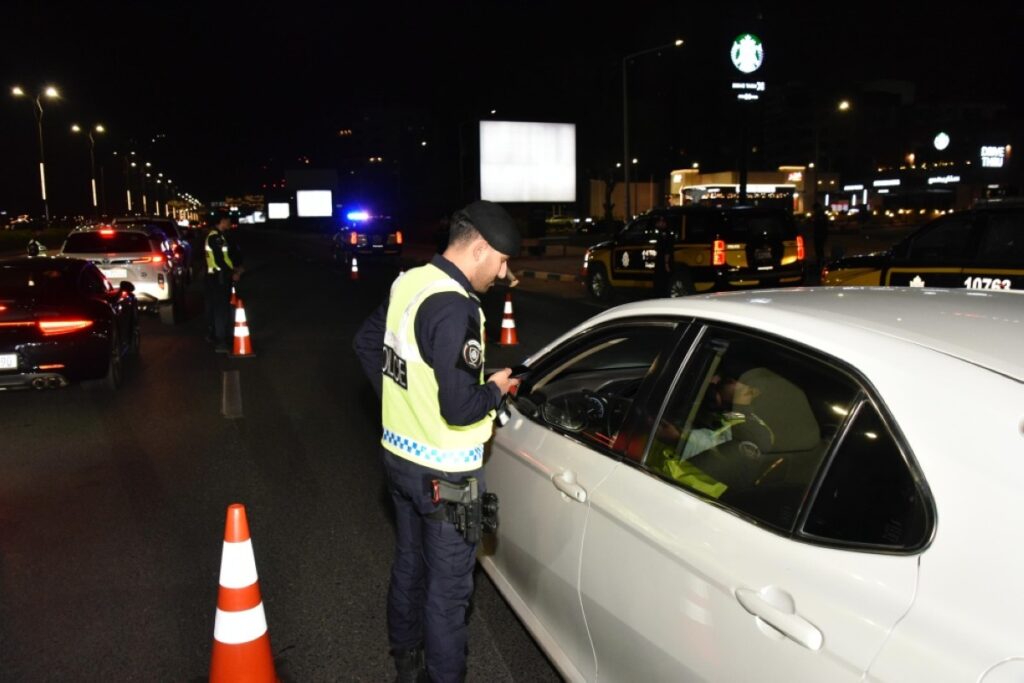KUWAIT: The interior ministry has launched a sweeping nationwide security campaign, supported by targeted operations that resulted in the seizure of narcotics, toxic chemicals and unlicensed firearms, emphasizing the government’s determination to safeguard public safety and uphold the rule of law. The campaign, carried out by the general department of emergency police in coordination with various security units, began on Aug 24 and will continue through Aug 29.
Patrols were deployed across all six governorates, with checkpoints established on main and side streets to monitor traffic violations, curb reckless driving and address behaviors endangering lives and property. The ministry urged citizens and residents to cooperate with security authorities, stressing that compliance with the law is a collective responsibility essential to protecting lives and property.
In a related operation, the criminal security sector raided a warehouse in Rai used to supply illegal alcohol factories. The site contained 340 plastic containers, each holding 25 liters of hazardous and flammable chemicals, stored in unsafe conditions that posed risks of fire, explosions and toxic gas leaks.
The warehouse was linked to an Egyptian national, Sayed Mohamed Abdo, currently outside Kuwait, with coordination underway with Egyptian authorities. The ministry confirmed that legal procedures have been initiated against those responsible. Last week, authorities dismantled a network accused of producing and distributing toxic methanol used to manufacture local liquor that recently killed 23 and injured 160 others, some of whom were blinded.
Meanwhile, the general department of drug control seized 34 kg of narcotics, including 30 kg of chemical substances, 3 kg of shabu (methamphetamine), 1 kg of hashish and 10,000 Lyrica capsules. Authorities also confiscated two unlicensed firearms, ammunition and sensitive scales. The main suspect, identified as Mardhi Sayer Majhool Al-Shammari, a non-Kuwaiti, was arrested after attempting to store the contraband inside a vehicle. His accomplice, Ahmed Hussein Qate’ Jabr Roumi, also a non-Kuwaiti and wanted fugitive, was later summoned and confessed to trafficking.
The interior ministry reaffirmed its commitment to intensifying efforts against drug trafficking, illegal alcohol production and activities threatening public safety. “The ministry will not tolerate anyone who endangers the security of the country or the health and safety of its citizens and residents,” a statement said, stressing that law enforcement campaigns will continue to dismantle illegal networks and maintain stability.
Separately, the Central Bank of Kuwait (CBK) on Sunday warned of scam attempts and called on the public not to transfer money to any unknown or untrusted account. CBK said in a statement on X that under the scam, fraudsters send an amount of money through the WAMD payment service and then call the receiver to claim that the amount was sent by mistake, asking the amount be sent to another phone number.
“Do not agree to send money to any account you do not know,” CBK said, adding the number could be part of a money laundering network. WAMD is the fastest payment transfer method in Kuwait designed to send and receive payments instantly via CBK mobile app from one user to another through a bank account.

